4v291o
I haven’t kept up with Marvel in a good while, and I honestly haven’t had much interest since they started doing so many TV shows. Too many of the new films seem to rely heavily on stuff that happened in the shows and I do not have the time or willpower to spend on them.
I was interested in Thunderbolts* because of how self contained it seemed. I could tell that some of the plot references the newer shows and films, but it really isn’t necessary to fully grasp the story. It’s a Marvel take on The Suicide Squad, and does it pretty well. A ragtag group of characters only superfans will recognize, mostly not very powerful, and seen as expendable by those around them. They even try to do their own spin on the Peacemaker character, though he’s probably the weakest element in the film.
I think they do a great job with the character writing, it feels less sassy Joss Wheaton Marvel writing and more genuine, trying to do a bit of its own thing. A lot of the dialogue feels natural, and you get a good feel for the dynamics between the cast.
Half to knock it down for the use of AI in the credits. On principle I don’t watch anything with generative AI. While I’m sure this was entire a Disney decision and not anything with the filmmakers, it still sucks and it needs to stop, period.
]]>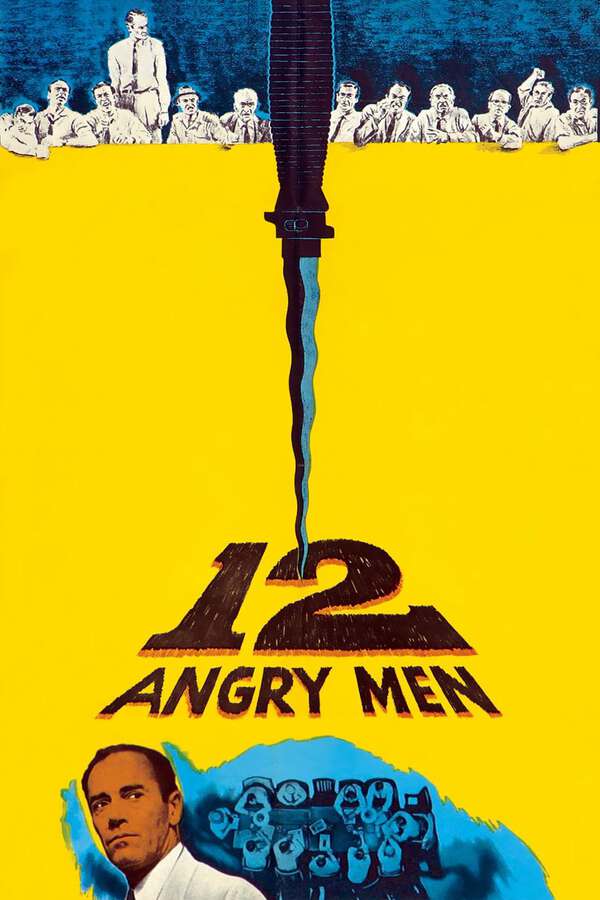
I had my first jury duty, and while I wasn’t selected to go into the trial, this film played in my mind a lot throughout the day.
On a list of 5 movies I think everyone needs to watch, I would absolutely put 12 Angry Men on it. While a few scenes are cheesy my modern standards (I personally found the “I’ll kill him” and the final juror’s breakdown to be a little hammy,) it’s such a masterpiece in every other regard it’s hard to hold that against it. The message about prejudice is as powerful as ever, it’s something that I wish everyone could bring with them into the deliberation box. Remaining probably the strongest “one room” films, the film perfectly captures the claustrophobic atmosphere and goes to great lengths to make the audience feel the heat of the room without air conditioning. The acting is suburb all around, and you really get a sense for all of the casts personalities very quickly, which is important for a film with such a large and close-knit bunch of characters.
This is one of those films that’s impacts are maybe more recognizable than the film itself, almost every sitcom has had a play on this plot line at some point or another. I’d really encourage people who haven’t checked this out to do so,
]]>
While I still like and will defend the first two films, Fred 3: Camp Fred is the worst of the trilogy. Almost all of the good aspects of the franchise are gone, becoming a generic, by-the-numbers children’s film. There are a couple scenes that capture the heart of the last two, but overall this is about as bad as people pretend the Fred films are. Every stereotypical camp joke from every camp film or TV episode is present, Fred’s fantasy scenes are toned down, and the ing cast is bland as hell. They even make TWO “he’s right behind me isn’t he” jokes.
Kevin’s actor is still hilarious in the role, and two of the original songs are pretty decent. I had “The Loser Song” stuck in my head all day after watching. That’s pretty much the only redeeming aspects of the movie.
]]>
As a kid, Fred 2: Night of the Living Fred was my favorite of the trilogy. It’s definitely the most “movie” movie out of all of them, having a structured plot and, like, rising actions and a climax and shit. But as an adult, these thing make me like it less than the experimental nature of the first.
I’ll still defend this one just as hard though. It’s still weird, has its own cinematic style, and is consistently funny. It doesn’t follow a generic kids movie format; even though the plot is relatively predictable, it gets there in ways that you wouldn’t expect. Lucas still does a great job as Fred, really good comedic timing overall.
I find it hilarious that they got rid of Judy’s character when they couldn’t get her actress back, but just replaced Bertha with someone who looks nothing like Janette McCurdy and thought it was fine. They give Fred a new love interest and act like he completely got over Judy, which is crazily out of character for him. I like Talia’s weirdness, but overall found her to be the weakest aspect of the film.
Much like the first one, Fred 2: Night of the Living Fred is a solid kids’ film with a lot of heart and only gets a bad rap because it’s attached to an internet celebrity.
]]>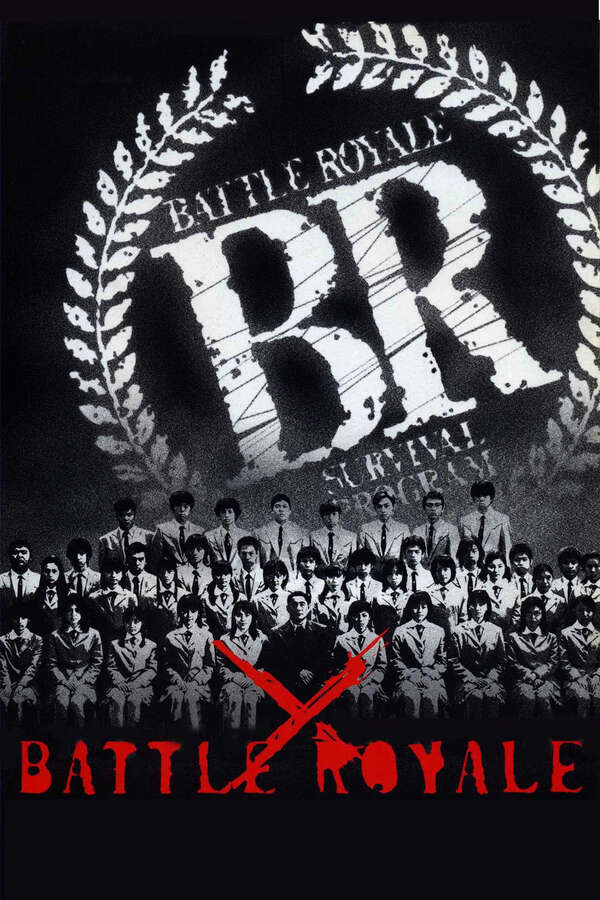
Battle Royale was one of those films that was so culturally impactful that I was constantly shocked I hadn’t watched yet. So much of what I’ve enjoyed was heavily inspired by it, from Squid Game to Danganronpa, so it was cool to finally see the origins of a lot of these tropes.
The film is immaculately paced. I absolutely could not keep track of the 42 different characters but they get picked off so quickly such interesting ways that there’s really no need to. The main cast has unique outfits and identifiers too, so it’s easy to tell who’s important just at a glance.
A lot of the death acting is bad, almost to parody levels. Characters will just suddenly droop their head dramatically and go limp, one step short of sticking their tongue out. It took me some time to adjust to. Also, while I haven’t read the novel, I know they took out a lot of the anti-government stuff that got the book banned in Japan, which is a shame.
]]>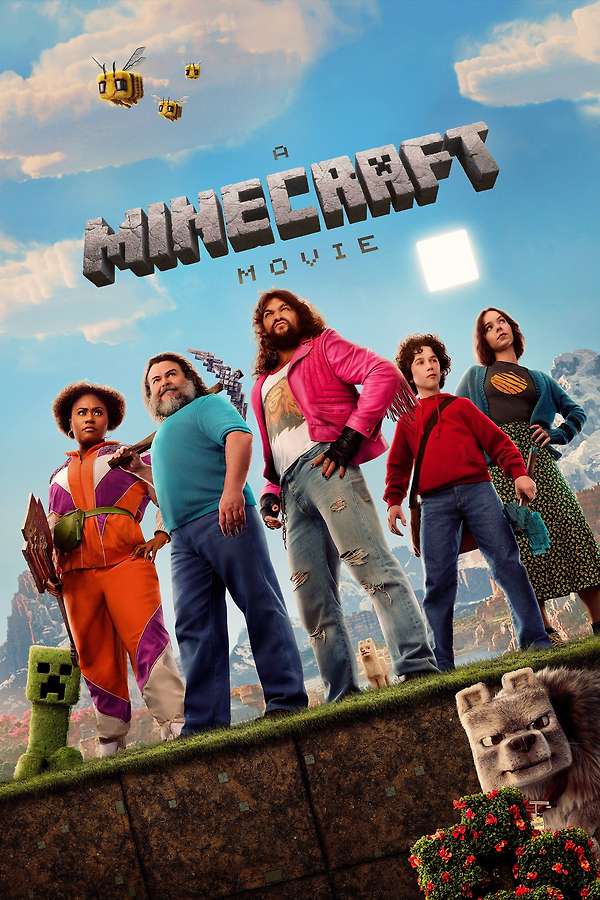
This feels like a complete cultural eclipse, a blatant ission that content reigns supreme over art. It’s something to shove in your feed hole rather than something made to enjoy. My theater was relatively empty, and the two children who came in with their mom never laughed once. This movie is for no one, it’s slop in a troff for animals.
It’s not even ironically enjoyable, I constantly took out my phone in the theater to check the time which is something I never do. It’s just things happening, running through the motions. It feels like the whole thing was written by AI, or even worse, Elon Musk.
It’s ironic that the ending tries to shoehorn in the moral that art and creativity is hard and only people up to the challenge can make something good, because nothing about this movie has any integrity behind it. I feel like a half star is too good for it, because it would imply it’s a train wreck, and that would be something actually exciting to watch
]]>
Okay listen. LISTEN.
I’m a big proponent of judging a film on its own merits. When you judge everything on the same scale as a Lynch or Kubrick film, you’re missing out on what the art itself is trying to do. That’s not fair to the art itself or you as a viewer, because you’re ignoring the fundamentals that each film is made on. And, for what it’s worth, FRED: The Movie accomplishes everything it set out to do.
I really feel like this film is only hated because it’s an internet influencer movie. The first of its kind, starring a very derisive character even at the time the film was made. But if this was an original movie, not connected to any online personality or property, I almost guarantee this would be considered a cult classic.
Unlike most cash grab kids movie, FRED: The Movie actually has a strong artistic vision behind it, believe it or not. I’m not exactly sure why, but it’s an extremely stylish and weird film, taking inspiration from Gummo of all things. It follows an optimistic outcast, living in his own world that’s at odds with the one he exists in. Fred’s mom feels like a realistic portrayal of an addict parent, and his behavior through the film makes sense given that framing. He can’t accept the horrible reality he finds himself in, and so the film interweaves these extended fantasy sequences that are literally, in-universe a coping method for him. You can’t even say I’m reading too much into this, this is the premise of the film.
I also think the film is funny. It might not be everyone’s cup of tea, but the humor is completely original and there’s plenty of well thought out jokes. Lucas Crukshank is able to carry over a lot of his experience using his online personality to find delivery that works for the character. His delivery is consistently funny and well-timed, and he’s able to carry any scene, even when it’s just himself most of the time.
There’s plenty of movies I thought were great as a kid and didn’t end up liking on a rewatch as an adult. This isn’t one of those movies. It’s just genuinely good, and sooner or later you people will have to accept that.
]]>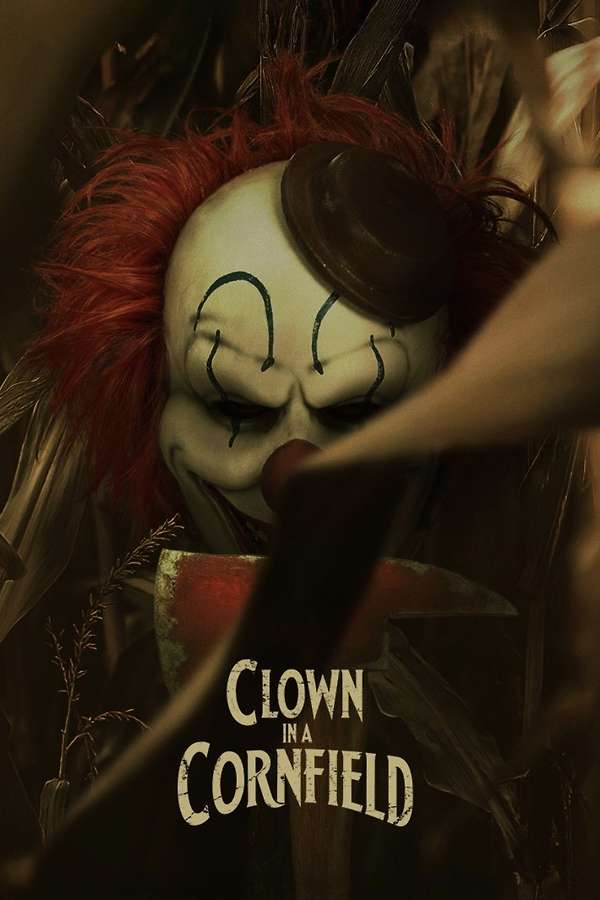
Despite how silly the name and premise is, I like how Clown in a Cornfield isn’t like every other ironic slasher Scream wannabe. They have a couple meta jokes here and there, but the vast majority of the film doesn’t undermine the tension of the situation by making the same jokes we’ve heard over and over for 30 years.
There’s some really decent casual dialogue here, conversations that feel real instead of actors reading a script. I wish this was carried over into the whole film, because a lot of the expository dialogue isn’t as well done. Nothing egregious, it just could’ve been improved. I also really liked the atmosphere and color grading of the film. I know people talk about “iPhone face” in relation to period pieces, but I think a lot of modern thrillers (even good ones) have a sort of iPhone vibe to them overall. It was nice to see a movie stand out in this regard, especially one that is heavily reliant on modern technology for the plot.
Overall a really impressive film for the budget. I never would’ve guessed this was made for under a million, it’s another example of a film that’s able to succeed despite heavy limitations.
]]>
Watched on Tuesday May 13, 2025.
]]>
This was one of my favorites as a kid, I renting it from Blockbuster constantly over summer breaks. While Recess: School’s Out isn’t as great as I ed, and I wouldn’t recommend it to anyone who didn’t grow up with it, I still had a fun time.
The first two acts are pretty mediocre, there’s some pacing issues and I don’t think it does a great job of establishing the 6 main characters before it sends most of them off to summer camp. The animation is pretty bad for a theatrical release, too. I really wish that this was made before the show switched away from gel animation, digital just does not do Recess’ style justice.
But honestly? It won me back over in the last act. I’m a sucker for kids’ revolution, fighting back with the tools they have at their disposal. This movie is probably why, actually. It always felt so badass to watch as a kid, and as an adult really makes me reminisce about what things used to be like. Even though the plot is ridiculous, especially given that the cartoon was pretty down to earth from what I , the teachers and the kids coming together to save summer vacation actually works really well.
I don’t think I ever realized that this was the proper wrap-up to the series, coming out a while 2 years after the show’s last episode, but I think this is a pretty decent end to the cartoon.
]]>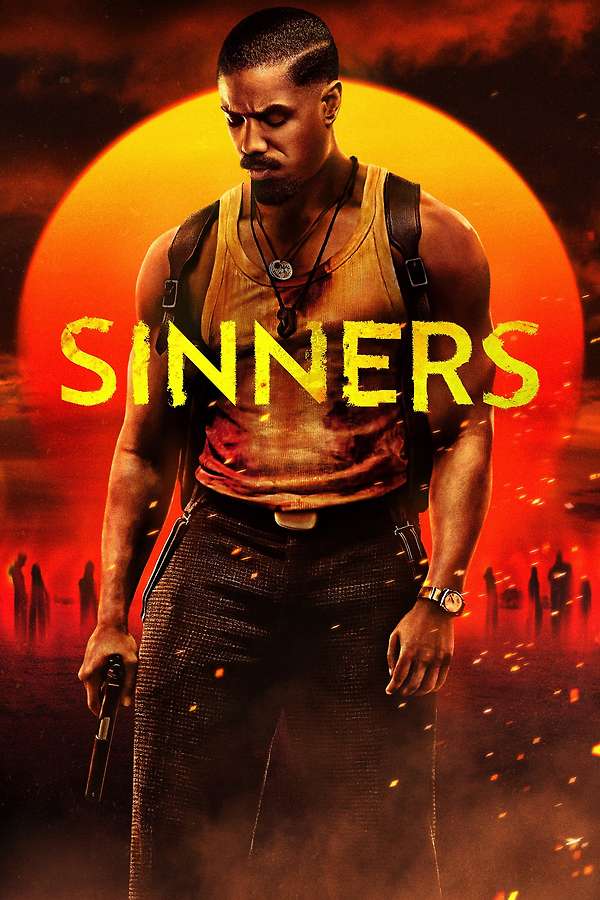
The best film I’ve seen this year so far, I have a hard time imagining Sinners will be out of the top 10 by year’s end.
Super original, narratively complex, and beautifully scored. Seeing this in IMAX elevated the film so much, especially during the music scenes. The energy of seeing a live musical performance is captured perfectly in a way I haven’t experienced by a film before.
Unfortunately, the lows of the film are pretty low. Normally, this would be enough to drop it another half a star at least for me, but the rest of the film is so immaculate I just can’t.
Without spoilers, I think the horror aspects are undercooked. Although this is a horror movie, I’d argue it’s primarily a crime thriller, so this isn’t the death knell you might assume. It’s definitely a shame though. It does the thing so many horror movies post Scream have felt the need to do, having one character who is an expert on what’s happening guide the characters with unnatural expository dialogue. This gives the film a sort of ironic detachment, not allowing it to fully buy in to the inherent absurdity of the premise. To explain it better, it’s like having a character stop the movie to say “hey, everyone, stop acting like characters in a horror movie and let’s do something that won’t get us dinged on CinemaSins.”
It especially doesn’t work in Sinners, being a very believable period piece up until this point. It starts to seem more like a Marvel movie in these scenes, much more modern sounding dialogue than anything we’d seen previously. Maybe Coogler’s previous work on the Black Panther movies had some negative influence here, I don’t know.
It definitely would bug me more if the film didn’t nail the ending, but it absolutely did, so I can give it more leeway than I normally would.
I don’t want to spoil anything, definitely go in blind. This is so close to a perfect film, I feel like one more at the script would’ve made this immaculate. I’m so glad I decided to see this in IMAX on a whim before it gets taken over by Thunderbolts* tomorrow, which will undoubtedly be nowhere near as good.
]]>
I watched Helvetica as extra credit for my web design class and walked away impressed at how good of a documentary this was. The decision to only use Helvetica for the first 50 minutes of the movie is genius, you understand the ubiquity of the font and appreciate it, but quickly start to get sick of it. Then, the film starts showing new fonts at the point where it’s illustrating the breakaway from using the typeface in the 70’s, and it’s a breath of fresh air. But the erratic, hard-to-make out fonts they start using exhausted themselves out in a shorter span of time, ushering in the film breaking Helvetica back out to talk about it’s resurgence in the 2000’s. Really clever stuff.
I also really enjoyed the debate about whether the font is capitalist or socialist. It’s commonly used in every product know to man, linking it with mega corporations. One of the interviewees even mentions how she didn’t like Helvetica because she associated it with companies funding the Vietnam war. But the ubiquity and easily accessible nature of the font has also led it to be on just about every street sign, road work, and public building as well. I was not expecting such a philosophical take from a documentary about a font, but here we are.
]]>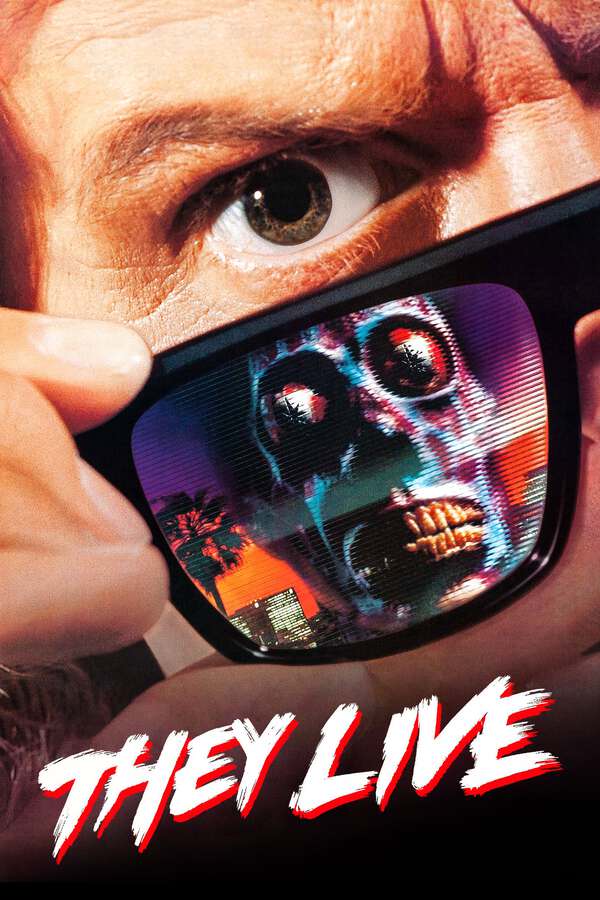
For a film made in 1988, They Live might be the wokest movie possible, right down to including a pronoun in the title. Carpenter did a great job at making this evil alien race feel like it isn’t supposed to be representative of one race or group of people, evident by the fact that I’ve never seen any Nazis online try to claim this film. They might exist, but they’re not nearly as prominent as the premise would make you think.
Sometimes a subtly crafted satire can really add to a story, but They Live is evidence that you can do a kick-to-the-head approach and still have it work just as well. The aliens are well thought out, they both make sense as to why they’re here in the universe of the film as well as being stand-ins for capitalist cronies in real life. I love the added detail that climate change is an intentional attempt to make the planet’s atmosphere more like that of the aliens’ homeworld. I think my favorite aspect, though, is the human recruits. It makes the analogy so much realer that real humans are willing to sell their fellow man out to literal ghouls for the sake of profit.
The saddest part of the film is that we’re doing all this in real life without some alien manipulation or mind control. We’re in our second, non-consecutive Trump term on mankind’s own volition, despite everything. It definitely gives more weight to the line that the aliens will have control over everything by 2025.
]]>
Watched on Saturday April 26, 2025.
]]>
I thought this would be a good double feature with Ella Enchanted.
Creepy guy recording himself doing creepy things is my shit, thoroughly. Be My Cat: A Film for Anne uses its low budget to the fullest extent, making a more unnerving film with this premise than something that could’ve been made with 100x the budget. I really ire filmmakers at the start of their career who are able to craft something around their limitations, instead of trying to shoot for the stars on their first attempt.
So much of the film is sold on how creepy the main character comes off. It’s incredibly realistic and unnerving. There’s some fair criticism to be had about how unrealistic the women act throughout, but part of the appeal for me is that all the actions parallel how the film was made in real life. Three women did agree to star in this film, and it makes me wonder, even if they did know the director on a more personal level, if they had any hesitations themselves. It may seem unrealistic that everyone in the building ignores the noise being made because they were told a horror movie was being filmed, but isn’t that also what happened in real life? I highly doubt this had the budget to rent out the entire building they were filming in, so doesn’t that kind of track?
A very promising first film, I’ll definitely be checking out more of Adrian Țofei’s films in the future.
]]>
This is a childhood movie of mine that I ed quite fondly and constantly think about the premise of the film. With that being the case, it’s a wonder to me how I mised almost every aspect of the film. The debate scene in school was the most impactful on me, apparently, because I completely constructed a whole new movie around it in which Ella is the only kid who had a fairy and that’s why she couldn’t tell anyone about her enchantment. Bizarre how the brain does that.
Ella Enchanted has been often compared to the Shrek films, and that’s no coincidence. This is definitely trying to cash in on the fairytale subversion trope that Shrek made so popular in the early 2000’s. However, unlike most films designed to appeal to existing market trends, Ella Enchanted is actually well thought out, original, and surprisingly good. It’s cheesy, I think the bad special effects really add something to the charm of the film. The only aspect of the film I think is undercooked is the romance, it’s a lot less conceivable to me that Ella and Charmont would get together in the short span of the film than it was in Shrek. They don’t have nearly as much chemistry as Shrek and Fiona, I can see Charmont falling for Ella, but I don’t really understand what Ella would see in him.
I really appreciate the overall message of breaking societies expectations of one’s self, especially since so many kids movies have a generic message of “be obedient” and “respect your elders.” Paralleling this with Ella being a political activist, fighting for the rights of enslaved raced despite her curse, makes it almost a “Baby’s First Leftist” film. I was surprised by the end how genuinely smart this was written, how they handled Ella as a character specifically. I wholeheartedly recommend this one.
]]>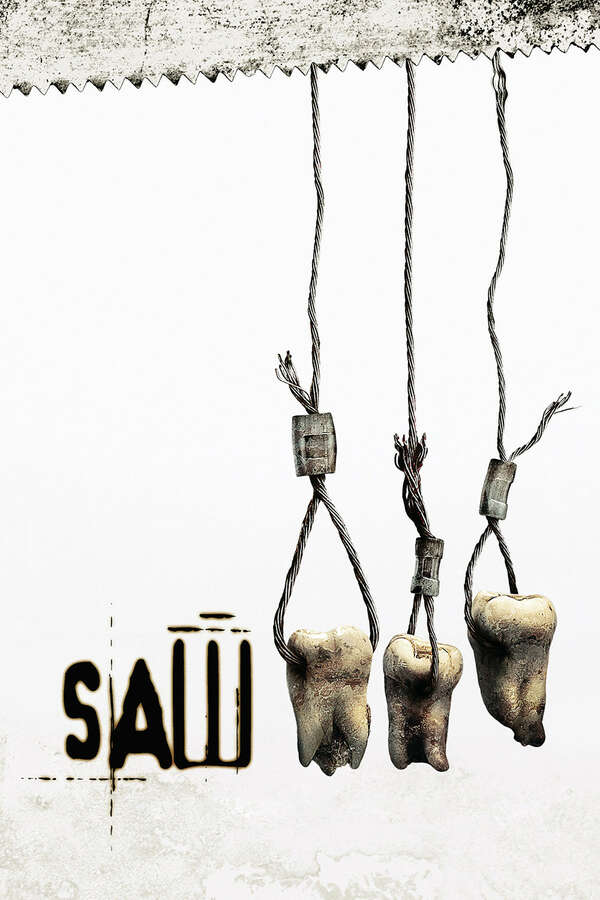
I said my piece about this film the last time I watched it, but I think the most damning thing I can say about this is that the main character, Jeff, is so boring that I genuinely forgot he was in a film. I thought the whole movie was about a nurse keeping Jigsaw alive. Everything about this one feels rushed and half-baked.
]]>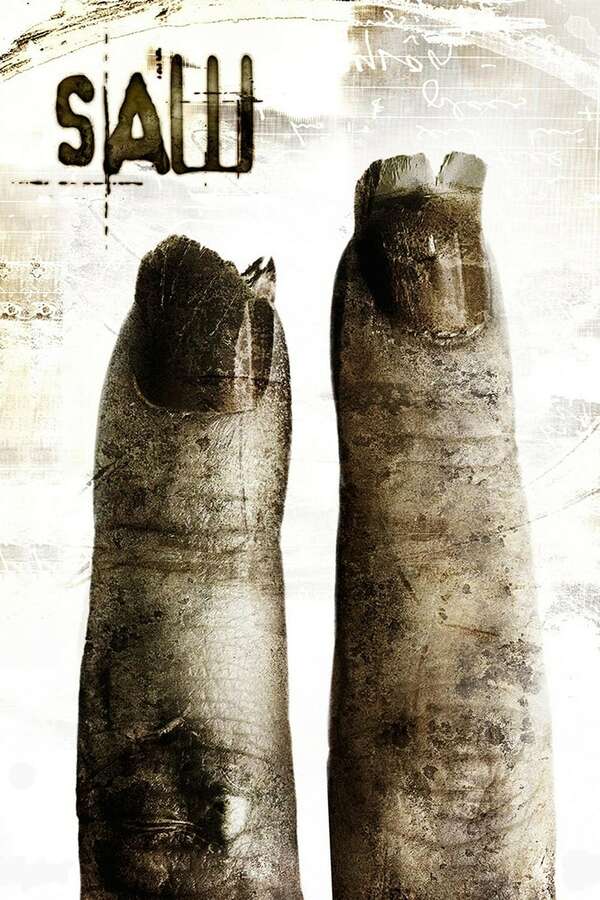
All things considered, Saw II isn’t all that bad. I’ve heard it wasn’t initially developed as a Saw movie, and I think that works to the film’s advantage. It doesn’t retread much of the same ground as the first one, and the more subdued approach towards gore makes the few scenes that use it stand out more.
As always, the detective subplot is the least compelling part. I totally forgot about the whole thing with the detective and his son, I genuinely think this franchise could cut the detective aspect out entirely and just make a film about Jigsaw’s game and it would be a better paced and more engaging film overall.
]]>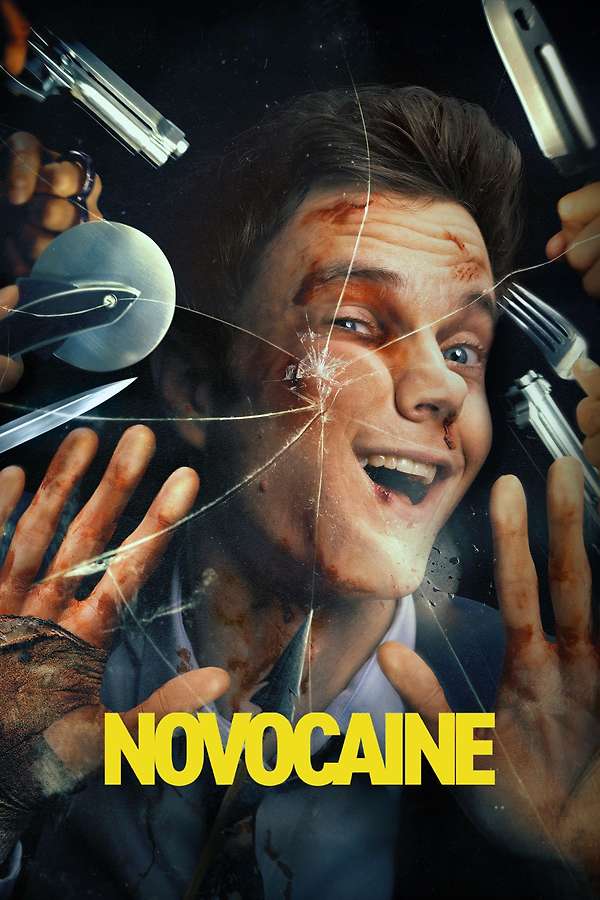
Novocaine is this year’s Boy Kills World to me. Both were incredibly promising, stylish action films that I was looking forward to, and both ended up really disappointing me in of story.
Novocaine’s first misstep is that it has the main character namedrop a real medical disability as his backstory. The love interest tells him that having CIPA is basically a superpower, despite it being a debilitating disorder that impacts people’s whole lives. The thing is, they could have still went with this angle, and done everything in the film that they wanted to, but still have proven the character wrong when she says this.
From the intro of the film, when the main character is listening to a self-help tape about not letting his disability define him, I could tell this was written by an able bodied person. Not only that, but I could tell it was written by someone who never really researched what it’s like to live with a disability, or if they did, didn’t listen.
Not being able to feel pain might sound like a benefit to the average person, but pain is an incredibly important part of being alive, and without it, you have to take a lot of precautions in order to live your life normally. Early on in the film, the main character explains to the love interest that he can’t eat pie, because it’s a solid food, and he could bite his tongue off without realizing it. This is a real thing people with CIPA have to worry about. The love interest makes fun of him for feeling this way, and forces him to try it anyway. He loves the pie. At the end of the film, he’s seen eating it again. The message of the film is direct, Nathan is letting his CIPA get in the way of living life to the fullest and that was bad for him.
What a stupid fucking moral.
If the film ended with Nathan facing consequences, permanent bodily injury, realizing he overexerted himself, and still deciding he made the right choice, I’d be fine with it. Sometimes, as a disabled person, you have to make difficult decisions about doing things you shouldn’t for one reason or another. I don’t think it’s wrong to portray that. But the film doesn’t do that. Instead, it validates the love interest’s claims that CIPA (again, a REAL WORLD DISABILITY THAT REAL PEOPLE SUFFER FROM IN REAL LIFE) is actually a super power.
I don’t know, maybe I’m being the friend who’s too woke about this, but having a film’s message be that disabled people should throw caution to the wind and live life in a way anyone else would, despite the consequences to their own body, just fucking blows, man. This is the only CIPA representation I’ve ever seen in a story, and it sucks for anyone suffering from it that they’ll have people thinking they’re being a baby for living their life in a way that allows them to be safe.
Again, all of this could’ve been avoided by a.) not namedropping a real disability and b.) not acting like the disability is really a superpower.
]]>
It’s been a while since I first watched The Taking of Deborah Logan. I didn’t a whole lot about it, I think I put it on assuming it was a cheesy bad horror film Netflix was filled with at the time so I didn’t really pay much attention. I do being surprised at how much better it was than I thought, and the ending really stuck with me.
Rewatching it all these years later, I think the film still holds up. It’s not perfect, I think the found footage style being misused is the biggest downside of this. It’s very clearly inspired by the first Paranormal Activity film, but it rarely ever captures that home movie vibe. The camera is too good quality, and there are a lot of shots that shouldn’t have been able to be captured in this style. There’s a scene at the hospital, for example, that cuts between multiple angles to get a better view. I can buy that the hospital might have cameras in a room for someone deemed dangerous to themselves and others, but there’s really no reason to have 3 different sets. I think it would’ve been much more effective if the whole scene was one still shot from a ceiling camera, with subtitles for barely audible dialogue.
This might sound like a nitpick, but it goes a long way in making a film capture the vibe of a found footage movie. I think this film benefits from the found footage angle, and I don’t think it should’ve been shot regularly, but they should’ve taken more care of how they went about it.
The story is excellent, however. Jill Larson does an immaculate job as Deborah, right from the characters introduction you can tell exactly what kind of person she is. There are a lot of subtle hints at her and her daughter, Sarah’s, relationship, things in her childhood that made her bitter towards Deborah. It creates a great dynamic where Sarah has to take care of a former ab, someone who caused her great harm in the past, and whose mental state is continuing to harm her in the present. The makeup and styling does an amazing job of transforming Jill Larson over the course of the film, from a well-presenting older woman to a deteriorating, end-of-life one.
Dementia is a horrifying thing to have, and it’s just as horrifying to watch happen to someone. I think The Taking of Deborah Logan does a great job of representing what it’s like from both perspectives, and I also appreciate how the horror doesn’t entirely hinge on the disabled person being creepy. It’s an aspect, yes, but in context it’s also not Deborah’s fault these things are happening. I think even just a little bit of that perspective can go a long way when making a horror film dealing with these kinds of subjects.
]]>
Flower seems to be a film built solely on shock value. Despite this, it isn’t even that shocking, leaving something only fundamentally trash and vapid.
Not to spew TV Tropes out, but the main character is the archetypical manic pixie dream girl mixed with virgin slut to a tee. You can tell instantly that this movie was written by men, she has no real depth to her character besides her blow job skills. She’s 17, by the way, and the movie makes sure you know this because she is “predating” on grown men to blackmail them for being pedophiles. Her main love interest is her soon-to-be step brother. The biggest problem is that the edginess of the film doesn’t really serve any purpose. I love stories that tackle challenging and subversive themes, sexual ones included, but there has to be substance behind it. I feel like it could have said something if the writers actually gave a shit about anything other than making something offensive, but there are so many obvious dots the narrative leaves unconnected. There’s no point to the film.
There are a surprising amount of recognizable names in this thing, no idea how Tim Heidecker got roped into this thing. His character isn’t even funny, and even in a film full of jokes that mostly don’t land, I don’t think his character was even meant to be funny.
Just don’t watch it, it’s not even good enough to force your friends to watch as a joke.
]]>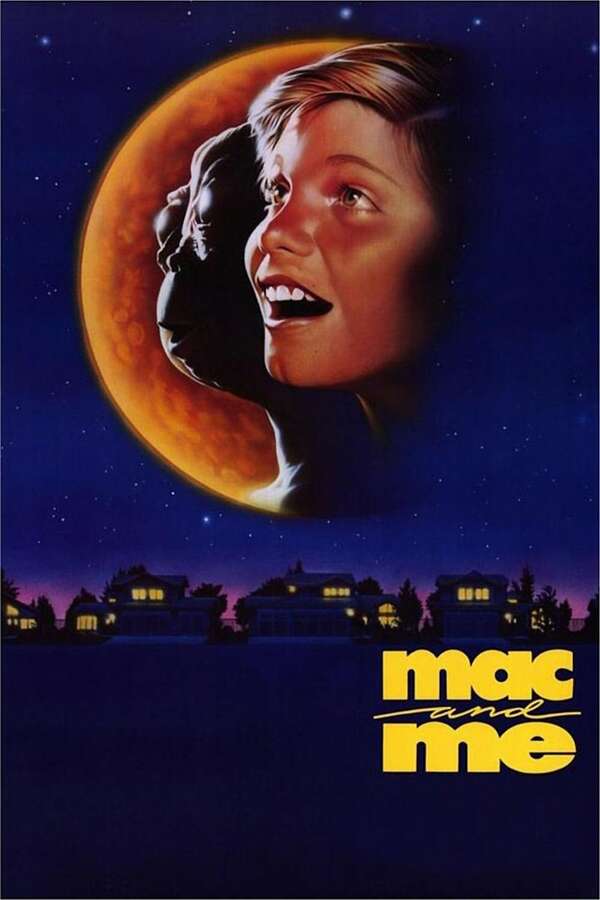
Something about the horrifying alien creatures and constant product placement makes this movie so entertaining that I could never place it among the worst movies of all time. Definitely a so-bad-it’s-good for me, unironically perfectly encapsulates the hyper capitalist hell world of the modern United States so well maybe we should send this into space so alien civilizations can understand what our life was like before humans go extinct.
]]>
I finally had a chance to watch a Lynch film in theaters, and I couldn’t be more happy. I just wish it didn’t come about due to Lynch’s death.
After this watch, I can safely say that Inland Empire is not just my favorite Lynch film, but my favorite film of all time. This is the first time changing it since I was 13 years old, and while I still adore Scott Pilgrim vs. The World, I cannot deny the impact that Inland Empire has had on me.
This is a sort of magical film for me. Even on only my second time watching, I could almost every aspect of it. Grace Zebriskie’s monologue at the beginning is seared into my mind, and I can recite just about all of it from memory. All three hours of the runtime jostle around in my head, and even if I don’t necessarily which scene happens in which order, on neither rewatch did I think to myself “Oh, I forgot all about this scene.”
It’s a film that’s meant to get lost in, which is what ends up happening to Nikki. There’s almost a parallel to House of Leaves, one of my favorite novels. In both, fictionalized versions of fictional characters end up getting lost, consumed by the story itself. The formatting of the medium itself lends to this, inviting the viewer to become lost with them. The scenes are out of order in Inland Empire, and the characters can’t if events have happened or if they will happen in the future. The same is true of the audience. The characters aren’t able to separate fiction from reality, just as we can’t differentiate what scenes are meant to be “canon” to the plot. The film is a maze, and once you watch it, it’s not clear whether you can ever truly escape it.
The best part of the film is how rancid the vibes are, and I mean it in the best possible way. You walk away from the movie feeling like you have been cursed, like you’ve just watched something you shouldn’t have had access to. It’s such an irreplicable feeling that I have to insist everyone watch it at least once, even if you walk away hating every second of the film.
The one criticism I have isn’t of the film itself, but I believe the Alamo Drafthouse used the Criterion version of the film, which is AI upscaled and doesn’t capture the shitty quality of the original. A key aspect of the film, all the red lights having a censor blur over them, is completely removed by this version. I know Lynch did approve of this cut of the film, but I do feel this is the inferior version and loses the texture of the original.
]]>
This review may contain spoilers.
To me, the most compelling part of Eraserhead is the world. Unlike every other Lynch film (except Dune, which, let’s be real, doesn’t count) it’s not really clear if the film takes place in our reality. Despite the bizarre style, Lynch’s later works still clearly take place in a version of our world, and around the same time that the films themselves were shot. With Eraserhead, this isn’t quite so clear cut.
One of my favorite set pieces of the film is the plant on Henry’s dresser. There’s no planter to speak of, just a pile of dirt with a dead stick on top. The message is clear, Henry’s small apartment is not capable of fostering growth. Not for him, not for his wife, and certainly not for his newborn child. A giant version of this is wheeled in late into the film during one of Henry’s breakdowns, a clear message that he has given up the will for growth altogether.
However, the important thing is that there is nowhere in the film is there ever a growing plant. Henry’s apartment is not unique in this aspect. Mary’s house has a lawn covered in decaying foliage, and every other location in the film is industrial and cold, not fostering any sign of life.
This is where my original point comes into play. There are a total of 7 living human beings in the story of Eraserhead. All of the shots of the outside world are empty. Every second of the film is a cacophony of metallic, mechanical buzzes and drones. The portrait of the nuclear explosion above Henry’s plant would seem to suggest that this is a post-apocalyptic world. These are the people on Earth who remain. The baby coming out at 4 months of pregnancy, the X’s eating “new” chickens the size of their fists, even the lady in the radiator’s deformed face, these all call to mind effects of nuclear radiation. This may or may not be the case, but I think the more interesting question is why David Lynch chose to set the movie in such a peculiar world.
Henry’s main struggle in the film is his own selfishness. The woman next door represents his lust, which compounds on the fact that he doesn’t want to be wedded to Mary or have a child at this stage in his life. When the woman moves on from Henry after their brief affair, the baby starts making sounds that Henry interprets as mocking laughter. He’s blaming his baby for ruining his chances with this woman, having to come to with the reality that he can no longer live life how he wants to. He sees his life as forfeit to the baby.
This is emphasized by Henry’s breakdown inside the radiator. Throughout the film, the radiator represents Henry’s inner desires through the deformed woman that comes out of it. In the first scene with her, she dances around the stage while worm-like creatures fall from the ceiling, crushing them under her heel as she goes. This is Henry’s desire to be infertile, to have sex without any sort of responsibility attached. When he awakens from this “dream,” he is horrified to find these worms inside of Mary as she sleeps beside him. He has had sex with Mary, and realizes that this action could lead to the same outcome that has caused him so much regret. He takes the sperm and throws them against the wall, hoping to undo his actions.
The next time the woman in the radiator comes out, she is singing a song with the lyrics “In Heaven, everything’s fine.” I feel that this can be taken literally, as Henry’s desire for death. We’ll come back to this.
This leads to the final radiator scene, in which Henry has his breakdown. The baby’s head pops up out of his neck, decapitating Henry and leaving his disembodied head on the floor. As with the other radiator scenes, this one takes place entirely in Henry’s mind, as does what comes next. He imagines his head being stolen by a young boy on the streets and sold to a factory. It might surprise first time viewers to learn that Eraserhead is a literal title, Henry’s head is cut open and his brain is used to make erasers. This is such an important scene that it became the title of the film. So let’s take a second to analyze it.
Unlike most of Lynch’s films, I find Eraserhead to be the most blunt with its symbolism, and I think that’s most evident here. Eraserhead. What do erasers do? They fix mistakes. In Henry’s mind, his life was stolen away from him, like the boy taking his head on the street, and now his entire purpose in life is to fix mistakes. But here’s the important part. He feels he’s being forced to fix other people’s mistakes. Obviously, as a head in a pencil factory, he won’t be writing anything, therefore he won’t need an eraser.
Circling back to my question, what does this have to do with the seemingly post-apocalyptic setting? Here’s the answer; Henry is consumed by his own inability for growth, but he fails to consider that the same is true for everyone around him. Henry is a selfish character. He was given the short end of the stick in a few cases, sure, but he never seems to be able to empathize with anyone other than himself. The fact is, there is no ideal place to raise a child. Nobody is ever “ready” to become a parent. And yet, children are born every day. People make it work, to the best of their ability. Henry’s focus is on his own unpotted plant, his own growth being stunted, and never takes the time to realize this is a constant throughout the entire world he lives in.
The film ends with Henry becoming fed up with his child. He unwraps the baby’s bandages, exposing its organs, and cuts into them with scissors. The baby transmogrifies, becoming ethereal, “haunting” Henry. Killing the child doesn’t solve Henry’s problems. So he embraces the woman in the radiator, signaling him ending his own life. “In Heaven, everything’s fine.”
I always feel a little embarrassed writing these more in-depth reviews. I don’t have the time or energy to put more than one draft in, so I never know if they come off as anything other than surface level analysis or even if they’re coherent. That being said, I love this film, and I think it deserves better than a snarky one sentence review. I don’t necessarily have a problem with people that do that, but I definitely prefer putting my heart into reviewing a film, even if it comes off as embarrassing to some.
]]>
Not sure exactly was I was on 7 years ago when I wrote my initial cringey review of this. Please forgive me, I was like 20. Genuinely have no idea what I was on about.
Even on a rewatch, I’m not quite sure what to make of Videodrome. Being much more familiar with Cronenberg’s filmography now, I feel like this is still stands out in a way I can’t quite put my finger on. He’s used these concepts in a lot of his other films, it’s not even the first time on some of them since Scanners came before this. But there’s something so compelling about Videodrome that I can’t put into words.
The fact that Cronenberg sort of predicted the Internet in a lot of ways with this one is fascinating. In 1999, he’d revisit a lot of the same narrative in a post internet world with eXistenZ, which uses video game technology as opposed to home video for its narrative. The thing that’s really sticks with me is not only how much is predicted, but how relevant that material is even 4 decades later. Maybe it shouldn’t be that surprising, given that public access television and home video share similarities with early Internet, but it’s still an understatement to say Videodrome is ahead of its time.
]]>
Really the only thing going for The Cat in the Hat is the distinct visual style. I wouldn’t exactly say it captures the style of the Seuss book, but it’s got a sort of Speed Racer thing going on that I enjoy. After the success of Jim Carrey’s Grinch adaptation, a movie like this was bound to happen, and who better to play the lead role than Shrek himself, Mike Meyers? Well, that’s the problem. It feels like a soulless corporate cash grab trying to ride the coattails of much more successful movies. Even kids at the time weren’t having it, making this one of the biggest box office flops of 2004.
I’m sure that was in part due to how fucking scary the Cat makeup looks, but kids were not missing out. I saw this in theaters, watched it at least a half dozen more times at home, and I still couldn’t describe to you any part of the film before watching it again. It’s boring, almost nothing of note happens. Meyers, a talent comedic actor, feels like he’s doing his best Robin Williams impression. This really doesn’t work seeing as how all the jokes are obviously prewritten and not funny to begin with. I’m still not exactly sure what voice Cat is supposed to have here. Cowardly Lion with gay New Yorker? Certainly not memorable enough to be iconic.
I wish I could be a defender of this film but I just can’t. Not even worth a revisit.
]]>
Honestly, I kinda just went to this one to it, not expecting much. I’m not much of a Looney Tunes girlie, never have been, but I love when 2D animation gets a theatrical release. I was pleasantly surprised by how good The Day the Earth Blew Up: A Looney Tunes Movie was.
First off, the animation is great. The animation in the last 2D movie I saw in theaters, The Bob’s Burgers Movie, was also really good, but this one is obviously a lot more cartoony and uninhibited that a more down-to-earth cartoon like Bob’s Burgers. Just this aspect is worth the watch alone, right from the beginning with the visual gag of Farmer Jim just being a highly detailed painted rendition that hardly moves is hilarious and it never lets up.
Most of the issues I had with the plot actually ended up working by the end, subverting my expectations. The twist towards the end genuinely got me. Personally, if I was writing this, I would’ve had Petunia be the one to add the goo to the gum in a search for her perfect flavor. It would put some responsibility on her character that she’d need to atone for, and give her a bit more of a character arc.
As it is, though, I really like Petunia as a character. Despite being that trope of being a female version of the main character that is the inevitable love interest, she is such a fun character that she’s able to stand on her own. Her and Porky actually have decent chemistry, and it doesn’t feel forced. They don’t do any of that Lola Bunny Space Jam stuff, which I really appreciate. Much more in line with The Looney Tunes Show, which is my favorite iteration of the cartoon anyway.
Absolutely worth the ticket price. Go see this in theaters while you have a chance. Fuck Zaslav and fuck Times Warner for not giving this any advertising and just dumping into limited theaters. I have no idea what vendetta Zaslav has against cartoons but damn does it make my blood boil.
]]>
Kaufman is one of the best writers and directors of our time (possibly the best screen writer, aside from maybe Paul Schrader.) My knowledge of his work has grown a lot since the first time I watched this on an international flight all those years ago and it makes me greatly appreciate the film all the more. Also it helps to not watch it on a screen smaller than my head. Sorry about that Charlie.
I don’t want to get too deep into an analysis at this point. It’s a very dense film and I definitely don’t understand all of it. The surface level meaning that life is rapidly moving forward and how hard one’s constantly changing perspectives make it to create art, that letting the scope of a project grow snowballs to an impossible endeavor that can’t really capture anything truly meaningful, the fact that most art is forever trapped within an artists mind never to see a real audience, all this is not lost on me. But beyond that, like all Kaufman works, Synecdoche, New York, is an exploration of the self told through a deeply flawed character. There’s so much minutiae and interconnected details that I don’t feel I can give it a proper analysis, even on a second watch. So I’ll leave it at that. This is one of the best films of all time from one of the greatest directors of all time, and I highly recommend it to anyone.
]]>
I’ve often thought about the impossibility of making films about mentally disabled people. The thing about making a story about people who need constant care is that the audience naturally will sympathize with the caretaker, not really offering a perspective from the people actually affected by the disability.
To be honest, Wildflower is sort of the same way. However, the film is smart enough to have the main character learn and grow out of her mindset. I also like the honest look about what it’s like to grow up with mentally disabled parents, something a lot of stories don’t tackle. It makes sense for the story to be framed this way, not a “poor me I am burdened with taking care of disabled people” but “here are the struggles and ostracization I face due to growing up this way.”
It doesn’t fall for a lot of the same traps as other similar films, and I like the overall message. It does fall for some of the cliches of coming-of-age movies, but not enough to weigh it down that much.
]]>
Found this in a DVD section of a 2nd and Charles and was curious about it. There was a rip posted on YouTube for free, so there was really no excuse not to watch it.
Turns out, it’s a contender for the worst film I’ve ever seen.
The real shame about Mount Adams is, despite the fact that it’s about alien dinosaurs, it’s the most boring film imaginable. So boring, in fact, that I can’t even recommend it on a so-bad-it’s-good level. The dinosaurs show up for a total of 3 scenes, and there is another scene with a giant insect, and that’s it. The special effects are surprisingly decent for a film of such a low budget, but that’s the only complement I can give the movie. The dialogue sucks, the acting makes it clear that these are clearly just the director’s friends, and the characters are so unmemorable that I didn’t even realize there were 6 of them in the group until 2 of them got dragged away by a t-rex.
The funniest thing about the movie is that the YouTube rip censors all the blood in a very jarring way, even the parts with obviously minimal amounts of it. This films almost put me to sleep, genuinely.
]]>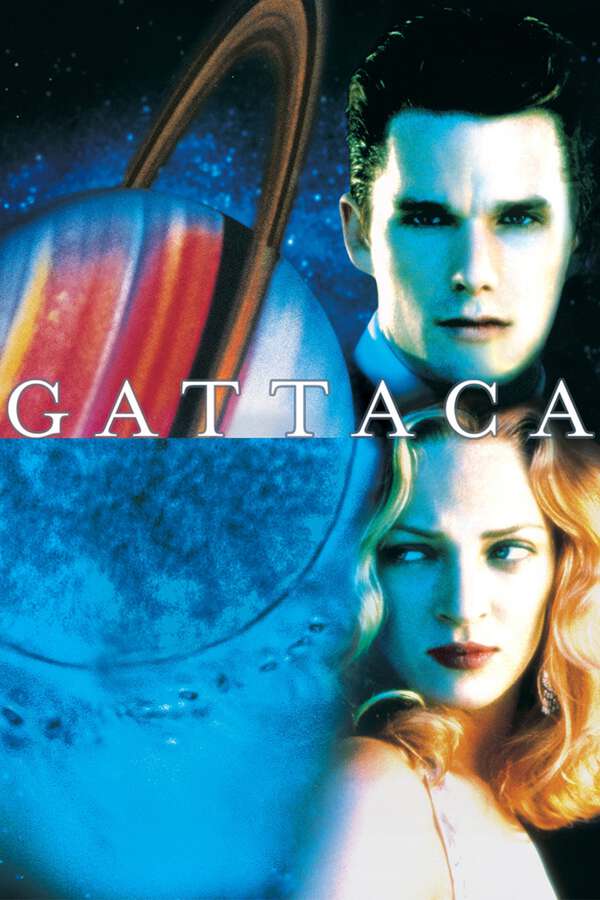
Gattaca is a blatant anti-eugenics film in a genre that typically tacitly pushes eugenics as a pro of living in the future. “No more disabilities, we’ll all be a race of Supermen.” Gattaca isn’t about that, which is refreshing.
There’s definitely some nitpicks to be had with the internal logic of the film, but I’m not CinemaSins and I assume the 3 people who read my reviews aren’t anal enough to care. It works well enough on its world building that it isn’t too distracting. I was definitely confused with the brother subplot, I felt some things about it weren’t clear and lead to me getting a little lost later on in the film.
Either way, the premise is really good, I like the aesthetic of the film, and I think it delivers on the majority of what it’s setting out to do. Definitely worth a watch.
Also, apparently Ethan Hawk has a nice cock.
]]>
Out of all the films trying to leech it’s entire identity from the Scream reboots, Heart Eyes is probably to most egregious. Films that just exist to deconstruct cliches are a cliche in and of themselves, and the amount of romance tropes shoved into the first act alone are enough to make your eyes roll. But then the film doesn’t even deconstruct them. It doesn’t exactly play it straight either, just a stupid middle ground where they acknowledge what’s happening is overdone and think that alone is enough to let it . It’s one of those films that feels like it had a bunch of scripts that were Frankensteined together, but I can’t exactly assume that’s the reason it’s as bad as it is. The horror elements feel barely present, too, despite the fact that it takes up a majority of the runtime, and I’m still wrapping my head around that. Maybe it’s because The Heart Eyes Killer isn’t nearly interesting enough of a slasher to want to follow, maybe it’s because a majority of the kills are lame and uninspired, maybe it’s because none of the characters are well written enough to root for. If you want a horror movie for Valentine’s Day, watch My Bloody Valentine. If you want one that deconstructs romance tropes, watch Audition. There’s really no reason to waste your time here, I’m honestly just frustrated that this even exists.
]]>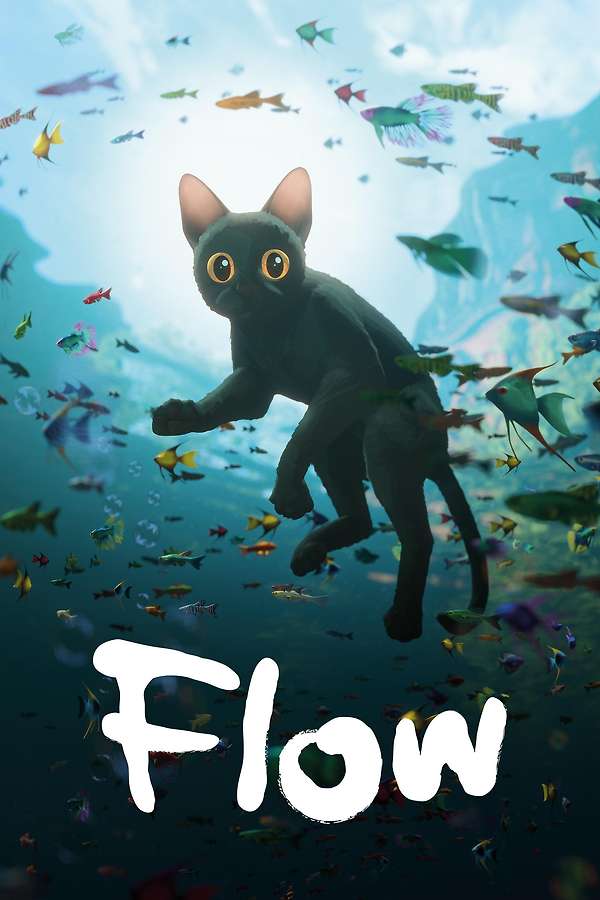
While I prefer Memoir of a Snail overall, it’s still insane to see Flow take Best Animated Picture over the more conventional choice of Inside Out 2.
The only downside is the models of the animals. The backgrounds are so gorgeous from any distance, but when the animals get too close to the camera, they look kind of janky and don’t match with the environment.
I have a lot of feelings about the film, it’s taking a very philosophical approach to it’s themes and story, but I really don’t feel like diving into it right now. Maybe I’ll try to give this a rewatch soon and analyze it then.
]]>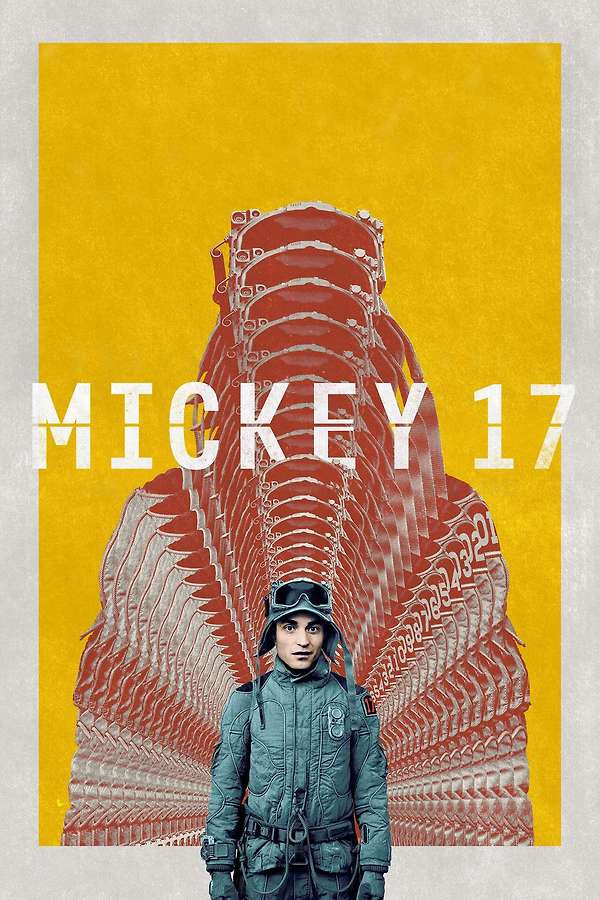
This has been one of my most anticipated films for a while, I even read the book last month in anticipation when I found out it, you know, was based on a book. Mickey 17 is in one of those weird spots where I think a lot of the source material works better overall, but it’s still a better film for making a lot of these changes.
Much like Bong Joon-ho’s other English films, this one is very cartoonish and unsubtle, not taking some more of the down-to-earth tone that most of his Korean language films do. It’s a lot of fun in that regard, Patterson, Ruffalo, and Collette all do such a great job at playing outlandish characters that this probably works the best for me out of the three. Doing an obvious Trump stand-in in 2025 can be a bit cringey at times, but the performance more than makes up for it. In the book, the Trump parallel is absent, but there is a very obvious Elon Musk parody character, and that might actually be the best part of the book. He was changed in the film to not resemble Musk at all, which was a bit of a let down, but probably ended up being for the better. Adding the Musk stuff back in would have almost definitely been too much.
I think the side characters could’ve been better handled. Timo and Kai have such little screen time, I wish they stuck to either having one or the other. I’m fine with the changes made to their counterparts in the novel, but they have such little impact on the overall plot that I don’t think the changes end up benefitting either. Personally, I think Timo should’ve been on the chopping block. Although he does offer more plot significance, the new direction the film goes with the breeding angle is a lot more interesting than the drug subplot, in my opinion.
]]>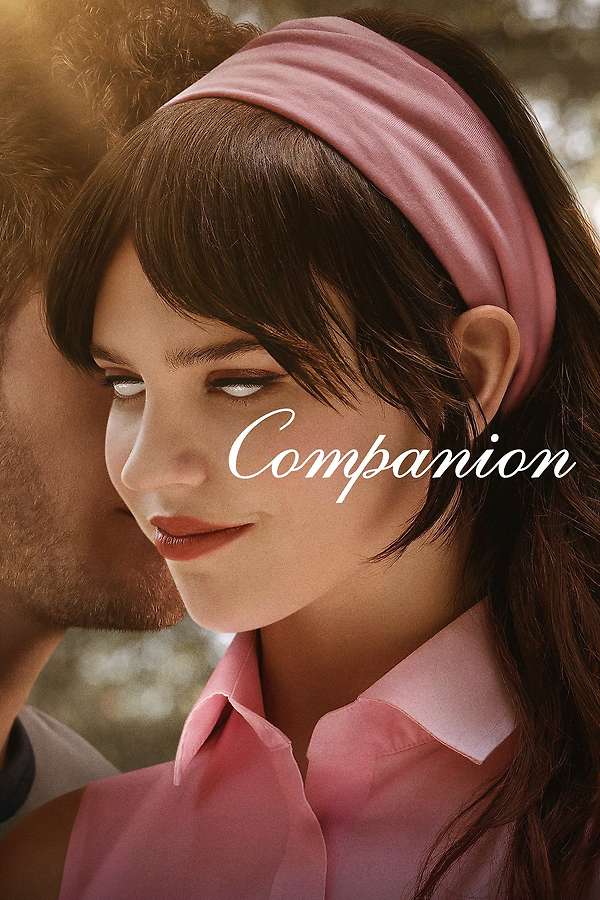
I don’t really have a lot to say about Companion. It looked like a fun movie based on the trailers, and it was. Obviously it has a serious undertone and the whole film isn’t meant to be taken lightly, but it’s kind of exactly what you’d expect on the tin. It’s sort of a reversal of The Stepford Wives, and makes several obvious allusions to it even from the first scene. I wouldn’t say it’s nearly as good as that film, but it’s still worth watching. My main complaint is that it feels too much like every other thriller-slash-comedy-slash-kinda-horror that’s coming out these days. It looks, feels, and is written in the exact same way, which is ironic given the subject matter of the film. Still worth a watch.
]]>
I never read the Dog Man series growing up, I was more of a Captain Underpants girlie, but another DreamWorks film based on a Dav Pilkey series piqued my interest. While I don’t think it is nearly as good as Captain Underpants: The First Epic Movie (still waiting on the second, DreamWorks…) Dog Man has one of the most fun styles of any animated film I’ve seen. Pete Davidson does a surprisingly good job as the voice of Pete the Cat, and aside from him, the film doesn’t really have any big celebrity names like most animated films. It’s a lot better than getting Kevin Hart to be George, that’s for sure.
Especially in today’s kids movie climate, Dog Man feels refreshing. It just feels like it’s doing its own thing, for better or worse, and I respect that. It’s nice to see DreamWorks make a film like this, and it’s even nicer to see it get rewarded at the box office. My only real gripe is with the pacing, I know that might sound like a weird complaint but it really just feels like one thing after another happening with no real cohesion. Maybe this aspect is faithful to the original series, but I didn’t think it worked well in movie format at least:
]]>
Compared to the first film, The Hitler Tapes feels meandering, like it doesn’t have a purpose. Despite its 55 minute runtime, it feels just as long, if not longer than the original. Most scenes drag on for far too long, don’t serve any purpose, there’s no real plot guiding the thing. And that’s kinda what I like about it?
Marcus inexplicably survived being shot in the head, as depicted at the end of Even Hitler Had a Girlfriend. Despite this, he’s learned no lesson, continuing his self-destructive behavior. Even after losing weight, something that he beat himself up over constantly in the first film, his life continues to get worse. He’s trapped himself in a cage built by his own self-pity. The film was made in 1994, but still perfectly encapsulates the incel movement of today. I guess things haven’t really changed all that much.
Honestly, I still wouldn’t recommend this film to very many people. I wouldn’t even necessarily say it’s a good or well made film, it just works enough for me that I ended up liking it. Sometimes unskilled art can say a lot, even unintentionally. It’s free on Tubi, which is surprising considering I’m one of the few people on this site who have logged it, and it’s only 55 minutes as I stated earlier. So it’s not exactly like you have any reason not to watch these films. If it sounds intriguing, go ahead and check them out, but don’t act like I recommended them to you.
]]>
After Hours is a film so frequently called an “underrated gem” that you can’t even called it an underrated gem. It’s just a rated gem at this point.
I’m still trying to piece together the meaning and subtext throughout the film. It’s very Lynchian and dreamlike, making it easy to grasp overall themes and metaphors while obscuring the overall purpose of the work. Instead of jumping into analyzing something I’m still mulling over, let me approach this from a different perspective.
After House is a point-and-click adventure game. The main character, Paul, is taken to several different locations in the film that he revisits constantly, like screens in a video game. In these screens, Paul uses, gains, or trades key items to progress the story. Often times, Paul uses the item in a location that doesn’t progress the story, like the game telling him this isn’t right time to use that particular item. Throughout the film, he basically wanders back and forth between screens, desperately trying to find out which characters need which item to finally let him get back home. This is most evident in the scene where Paul exchanges his keys for the bartender’s. He takes the keys, does his required tasks in the new location, and gets sidetracked by the men in the van, forcing him to switch which side quest he’s on. By the time he completes this side quest, the bartender side quest isn’t available, forcing him to mill about and progress the waitress’ story line until that part of the game opens back up.
This isn’t really meaningful to point out in any way, it doesn’t give anyone a deeper understanding of the film, but it’s the only film I’ve seen that’s paced like this. In another world, After Hours is a sprite based 90’s PC game that had players stuck for days trying to figure out which NPC they need to give the 97 cents to. The thing I find interesting is that this is definitely unintentional, but is so fundamental to how the film works. If you watched a long play of a point-and-click game like it was a movie, it would feel exactly like After Hours. I don’t really have an answer to why that is at this point. I just couldn’t not bring it up.
I maybe be insane. That’s the end of that sentence.
]]>
I’m disappointed. This was supposedly one of the worst animated films of all time, I was expecting the stupidest thing I’ve ever seen, but it’s actually better than the first by quite a wide margin.
Moriarty is a great villain, he’s animated really well. I really like it when characters are animated differently to make them stand out from the rest of the cast. It’s weird that it’s so uncommon but somehow Sherlock Gnomes does a better job at it than most. The animation is just pretty good in general, I hate the hyper realistic animals but the toys/ceramics are pretty well done.
The resolution between Sherlock and Watson comes 30 minutes too early and is completely anti-climactic. It’s also does that stupid falling out romance cliche that every kids film does, but I actually kind of like how Juliet comes to her conclusion about it. They also heavily code Sherlock and Watson as lovers which is pretty cool.
Uh, yeah. Serviceable film? Nothing super special but if I had kids I’d be fine watching it with them.
]]>
I like how you can tell they came up with the name first and worked backwards from there. Not quite as bad as I was expecting, still bad just not offensively bad. The movie is surprisingly horny, everybody wants a piece of someone. Gnomeo is almost Tumblr Sexyman bait in of design, the eyebrow scar, the grey beard, his weathered aesthetic. He is almost certainly bisexual. Ultimately the movie hits every plot point you’d expect in the exact way you’d expect and ends with a dance party. Definitionally mid.
]]>
I don’t know how to explain it, but this film has the exact vibes of every mid 2000’s Shrek copycat film but in live action and aimed at adults. Shaggy gives a surprisingly alright performance but Violent Jay’s acting is so bad it can’t even qualify as camp.
]]>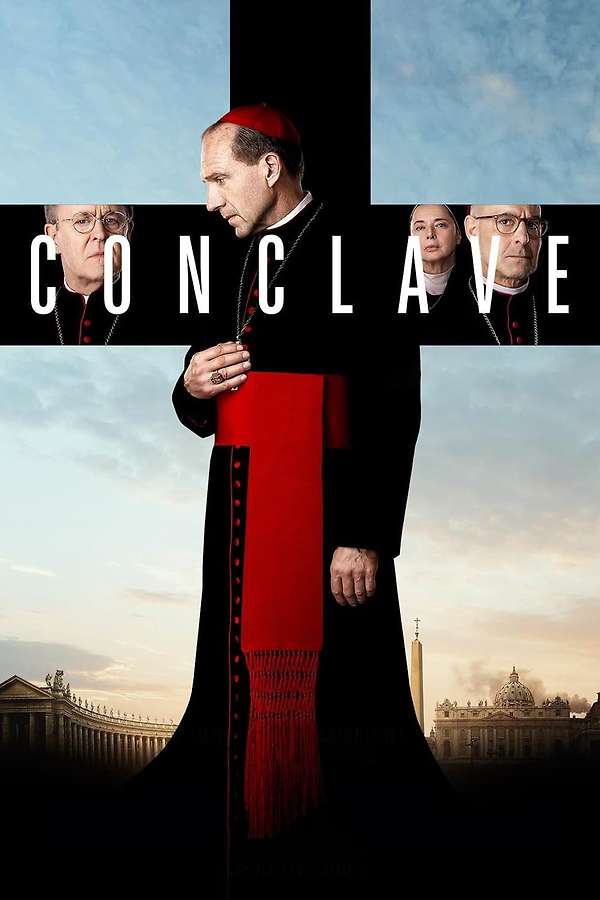
Conclave is a great metaphor for US elections seen through the lenses of the Vatican. The Catholic Church is one of the most evil institutions on the planet, both historically and currently. Nonetheless, having a good pope, a progressive pope, is something that benefits everyone, not just those within the practice. This leads to the scenario of having ask yourself whether you’re willing to sacrifice your morals as a voter to back a candidate with a higher chance of winning, the lesser of two evils.
The movie isn’t exactly subtle about the comparison, but the narrative is enough to be compelling in and of itself, and that’s really all I can ask of it. If there were specific characters designed to be Biden, Trump, Kamala, etc, then the movie would fall flat. What really works about Conclave is that it doesn’t just feel like the 2024 election, or the 2020 election, or the 2016 election, but every election that the US will have for the rest of our lives.
I’m 50/50 on the ending twist. It’s a good reveal within the narrative but I’m not sure I like it as the allegory it represents. Other than that, I can think of anything to complain about.
]]>
One of the most disturbing films I’ve ever seen. You can tell a woman wrote and directed this, because despite being very explicit, it never sexualizes either of the underaged girls. The depiction of grooming handled with care, realistic but framed in a way where the audience should never be sympathetic to the ab. I really liked the relationship between the sisters, they flipflop on how they feel about each other through the course of the film in a natural manner, leaving the audience to speculate about what they really thought of each other in the end. Anaïs has good reason to dislike Elena, and she clearly harbors some resentment at points, but it isn’t all encoming. It’s a really well written and complex dynamic that makes the characters feel real.
In the end, the film leaves us with one haunting, unanswerable question: Who is the worse monster? Italian Men or French Men?
]]>
I recently read “Columbine” by Dave Cullen, one of the most painstakingly accurate ings of the massacre ever written. It often crossed my mind during reading how to make a movie about the tragedy, or any school shooting, without sensationalizing the events. I just kept imagining something akin to a cheesy true crime Netflix series, cashing in on the horrific story without trying to take any care with the actual victims.
Elephant is about the best you could hope for in this respect. While obviously based on real world facts of the Columbine Massacre, the film is entirely fictional, not trying to portray any specific victim or drawing close parallels to the actual events of the day. The general gist is the same, but framing it this way allows it to narrativize and send its message without it being at the expense of real world victims. The entire first 2/3rds of the film aren’t even told in a narrative fashion, instead just showing snippets of the children’s lives on the day of the shooting. There’s not dialogue so much as conversations, it feels like you’re listening to a recording of actual high schoolers in the 2000’s talk. In doing this, it portrays the fictional victims as real people, not just characters on a screen. A majority of the film isn’t “interesting,” it’s taking great lengths to set the atmosphere of the high school to make it feel real, lived in. All of this comes together to make the final product much more disturbing. So many long shots of students moving through hallways with no dialogue, people you know little about, but enough to empathize with them and want them to make it out.
I think this should be the rule book for how to make a film based on a real world tragedy. Inspired by, not based on. There’s no way to turn everything that happened on the day of the Columbine shooting into an accurate, respectful, and responsible film. So don’t do it. If you want to provide information, make a documentary. If you want to provide commentary, make something different.
]]>
Honestly, the premise alone is enough to make this worth watching. the jokes are pretty consistent and the plot has enough twists and turns to keep the film engaging. It’s cheesy and kinda schlocky but I don’t know how anyone would expect anything different.
]]>
For a film about Danny DeVito impregnating Arnold Schwarzenegger with Emma Thompson’s baby, Junior holds up surprisingly well. I think this is probably way funnier in the year 2025 that it ever was in 1994, a lot of the humor I found in it has to do with stuff I’m sure the original writers knew nothing about. Nonetheless, I still think Junior was surprisingly progressive for its time, even though I know I should probably be put down for saying those words in that order.
]]>
This review may contain spoilers.
More so than anything, Emilia Pérez fails because it has no cohesion. After the film ended, thinking back on it, I was able to connect enough of the dots to understand what the film was trying to do, or at least thought it was trying to do. The problem is that every 20 minutes, it basically switches to an all new plot. Each of these new plots have little to no central conflict until the very last few, leading to an uninteresting viewing experience. Rita, the film’s main protagonist for the first act, basically disappears for the majority of the rest of the runtime, only showing up at moments the plot has an excuse to use her. Shifting protagonists mid-story is possible, but it has to be done seamlessly, and it definitely isn’t here. It begs the question why the film opens on Rita at all if she basically isn’t going to have a meaningful arch or character development.
The worst aspect by far are the songs. Many have pointed to “La Vaginoplastia” as being terrible, but I’d actually say this is the best song in the whole thing. It’s memorable, catchy, and campy enough to kind of go hard. In contrast, I can’t tell you anything about any of the other songs aside from what context they appear in. They basically grind the pacing of each scene to a halt and force the audience to be stuck in scenes that already feel unbearably long.
The trans aspect of Emilia Pérez isn’t nearly as poorly handled as I expected from the get. I am in no way meaning to imply that this is good representation, I spent the whole first act questioning whether Emilia was supposed to be trans or just a cis man who’s transition to go into hiding. But it’s by no means offensive, it treats Emilia as a woman at all times and I can’t think of any time it gets information about trans people explicitly wrong.
As a trans story, on the other hand, Emilia Pérez is a failure in every way. Essentially the film is about a criminal who uses her transition as a way to come into a change in her lifestyle. There’s nothing inherently wrong with this, and even has potential in what it has to say about the trans experience. However, the film doesn’t really do anything with this. Emilia, kind of on a whim, decides to lead an organization to help recover the bodies of victims of the cartel. I was unclear whether or not these were victims she specifically had a hand in killing during her years as a criminal, the film’s dialogue is very hard to follow, but it doesn’t really matter. Obviously, Emilia is risking a lot by doing this, she was a very well known criminal before faking her death to transition and anyone who knew her previously has a change of finding out the truth with her being the face of the organization. This never comes up.
This whole story only works because every single character is as stupid as possible. Emilia’s ex-wife has no idea until the very end that Emilia used to be her husband, and no one else in the story ever recognizes her post transition. Instead, Emilia becomes violent and regresses to her abusive ways in treating her ex-wife, leading to her ex-wife kidnapping her and holding her for ransom with her new lover. This is completely irrelevant to Emilia’s arc as a character, this seemingly would have happened regardless of her actions with her organization. This leads to that entire subplot being superfluous, it could be cut entirely with absolutely no consequence. Even Emilia’s new love interest that she meets through this organization doesn’t appear for more than 3 scenes and doesn’t affect the overall plot in any way.
The film ends with Emilia dead and the community heralding her as a patron saint for her community work, never learning of her previous life. This is obviously unearned for her character, but I don’t think the film recognizes that. This is because any attempts for the film to draw thematic significance through any of the actions on screen are failures. This could have been an interesting story about a former criminal trying to make amends post transition, backsliding into old habits, and ultimately realizing that her rebirth doesn’t negate the damage she did nor the person she used to be. That would have been something that is relevant and interesting to the dynamic presented. That would have also required them to think about what they were making as they were making it.
Anyway, if Poor Things taught me anything, I’m sure this will sweep the Oscar’s. While nowhere near as bad as that movie, Emilia Pérez really only serves to be a film that people who pretend to be smart can pat themselves on the back for watching, claiming it to be a sign that they understand the struggles of marginalized peoples. The Academy loves that shit. If you are surprised at all that this got 13 Oscar noms I think you need to re-examine what you think the Oscar’s are.
]]>
Kinda forgot I watched this one tbh, which is why I’m logging it a week late. Despite a fun premise and some jokes that land alright, there’s just really not that much to Cooties.
]]>
This review may contain spoilers.
I went back and forth whether Violence at Noon was a respectful portrayal of the subject matter. After all, it’s a 60’s film written and directed by men about two women’s complex emotions about a man who raped them. Despite all odds, though, the film expertly navigates the challenging topics and themes it sets out, creating morally grey and questionable protagonists without blaming them for what happened.
Neither Shino nor Matsuko are reliable narrators on Eisuke’s motives. Shino has understandably been consumed by hatred for Eisuke after he rapes her unconscious body, but sees him as her savior for cutting her body down after the double suicide attempt with her lover, Genji. Matsuko, on the other hand, is disgusted by Eisuke’s monstrous actions, but still asks to marry him after learning of Genji’s suicide. Although this behavior doesn’t seem logical, Matsuko is regretful that she rejected Genji’s marriage proposal, which not only lead to his suicide, but to him proposing a double suicide with Shino. The film parallels marriage and double suicide, a permanent bond that links two beings in an act of love, however twisted it may be. Eisuke cuts Shino’s body down, not out of love for Shino, but out of hate for Genji. In the same way, Matsuko marries Eisuke, not out of love for Eisuke, but out of jealousy for Shino and Genji’s bond. The film ends with Matsuko and Eisuke attempting double suicide while Eisuke is sentenced to death for his serial rapes and murders. This is an ission of guilt on their parts. Because they both decided not to turn Eisuke in, they are complicit in all of the rapes and murders that follow. (I don’t think it’s necessarily morally wrong for victims not to turn their rapists in in real life, obviously, but the two clearly are protecting him do to their complicated and irrational feelings towards him, not out of any fear to themselves or any other complications, with the knowledge that he’ll continue his crime spree.) The double suicide not only links the two of them together forever, but the two of them to Eisuke, not out of love, but again out of hate.
The film doesn’t end, though. Shino once again survives. She states earlier in the film that she might was done the same as Eisuke if she was a man, because at this point the hatred had consumed her. She hated Eisuke for cutting her down from the tree, not just because he raped her, but because he stole her chance to die with someone she loved. The film ends on Shino carrying Matsuko’s corpse on her shoulders, the final sound being her snapping a branch from a tree. The implication is obvious, she is going to violate Matsuko’s corpse, like Eisuke did to her. She is once again choosing hate, repeating the monstrous actions that have been committed against her.
In my opinion, this all works because of Eisuke’s ission that he would have committed these crimes regardless of his involvement with the two women. The film does not blame them for putting Eisuke in this situation, there isn’t any possible way to justify what he did. This allows Matsuko and Shino to be bad people without any attempt to rationalize what was done to them. Their rapes weren’t a narrative punishment for their actions leading up to it, or a preemptive punishment for who they became after. Like I said originally, it’s very challenging subject matter, but in my personal opinion, this was a good way to go about it. Very ahead of its time in many ways.
Normally I don’t go this in-depth on a first watch, because I don’t believe it’s possible to understand virtually any film completely only seeing it once, but this is an obscure film without much analysis so I thought it might be nice to give my insight on it.
]]>
This review may contain spoilers.
I was planning to watch this all week on my Criterion Blu-ray when the news broke. I couldn’t believe what I read and I desperately searched for it to be a hoax but it wasn’t. After spending the last few weeks binging all of his films, David Lynch had ed away.
I think this is the best place to start for someone looking to get into Lynch’s filmography. Compared to most of his work, Mulholland Drive is pretty straightforward, easily digestible. I can understand why this is his most popular and accredited film for that reason. Personally, I think this aspect has held back discussion of the film. Most of the discussion around Mulholland Drive is about the what of the plot; and not the why.
Obviously, the first two acts are a dream taking place in Betty’s (real name Diane Selwyn) mind. In the real world, Diane has hired an assassin to kill her ex-lover, Camilla Rhodes, after she leaves Diane for the director of the film they’re both working on. The initial 2 hours are a scenario her guilt-racked mind conjures up in an abnormal long slumber. This is what the main focus of most analyses on the film, so I won’t linger on this. Instead, I want to discuss Lynch’s use of dreams as an allegory for films themselves.
The Silencio scene is one of the most iconic in the film, and it’s foreshadowed earlier on while the director casts the dream version of Camilla Rhodes as the lead actress. The scene opens on a woman in a recording studio singing a song, when the camera pulls back to reveal that the studio is a fake set for part of a film. The woman and band were lip-synching to create the illusion of performing live music. The purpose of framing the scene like this is to trick the real audience of film, of course, just like the Silencio scene is meant to trick the audience watching the stage show. The key difference is that before the Silencio performance, a man comes out and deliberately tells the audience that there is no band. “No Hay Banda.” Why is this element missing from the scene it’s paralleling? Because the audience already has this information from the second they started watching the film. Of course the scene isn’t real, you’re watching a movie. This is a fourth wall break, directly calling out the audience.
We know dreams are fake, but during the dream, our minds are able to convince themselves that they’re real. In this scene, Lynch is drawing a parallel between this idea and the suspension of disbelief we have when choosing to watch a film. The first few scenes of Mulholland Drive are almost comedically cheesy, overexposed colors, rigid acting, ADRed voice lines (“No Hay Banda”) almost as if Lynch is directly challenging the audience to establish a suspension of disbelief in such an obviously fake world. But it does happen. The narrative, mystery, and pacing of the film are enthralling, making the audience forget how unbelievable the film its itself to be.
My favorite scene, one of Lynch’s best in general, is the first one at Winkie’s diner. It’s so captivating from the first second, so surreal yet grounded. Perfectly paced, I still exactly how I felt the first time I saw the reveal of the face behind the dumpster. The message of the scene is clear. Dreams might not be real, but there’s truth in them. They reveal something true about ourselves, and have an effect on us in the waking world. The same is true of films. Mulholland Drive is completely fictional, and we know that going in, but we choose to believe what it’s telling us as it happens. We pretend it’s real enough to have an impact on us in the real world. Another element I exactly how I felt on the initial viewing was the reveal of the dream. I had been so invested in the mystery the film presented, only to be told that the true identity of Rita and the nature of the underground crime ring set to control the outcome of the in-universe film, wouldn’t be answered. It wasn’t reality. Questions would be answered, but they were questioned I didn’t know I had until the reveal. This is part of the reason I think this is the best Lynch film to start with. This is the perfect introduction to Lynch’s approach to mysteries. You’ll get answers, but your main questions are something you’ll have to figure out on your own.
The reason I love this so much is because it isn’t just a slap in the face. It’s a direct challenge to the audience. I couldn’t be disappointed at the film’s reveal that the first 2 hours were fictional, because I knew they were fictional when I put on the movie. If it had an impact on me, why did it matter in the film acknowledged itself that it wasn’t real? It’s a truth I already knew. There was never a band. It’s something the film and I agreed upon in order for me to watch it.
Lynch was an artist unlike any other. I’m only a little familiar with who he was as a person outside of his directorial work, but needless to say, I feel he as an individual was transcendent. He had a mind unlike anyone else’s, no one can replicate any aspect of him. Sharing the planet with him for my whole life makes me feel like I was in some kind of beautiful dream. But it’s time to wake up, pretty girl. Rest in Peace, David Lynch.
]]>Technically 11, but Scott Pilgrim and Baby Driver occupy the same space in my heart. Subject to change
- Inland Empire
- Neon Genesis Evangelion: The End of Evangelion
- Scott Pilgrim vs. the World
- Baby Driver
- The Thing
- Boogie Nights
- The Shining
- I'm Thinking of Ending Things
- First Reformed
- Perfect Blue
...plus 1 more. View the full list on Letterboxd.
]]>All films I’ve seen that got a major release in 2024. As always, I don’t care if a film was technically shown in 2023 as a limited release in a festival, if it hit theaters/streaming in 2024 then it goes in this list.
- I Saw the TV Glow
- Anora
- Memoir of a Snail
- Flow
- Conclave
- Nosferatu
- Dune: Part Two
- Problemista
- Look Back
- Rebel Ridge
...plus 27 more. View the full list on Letterboxd.
]]>Rest in Peace to the greatest artist of our time
]]>Movies that take place during Christmas but aren’t traditional holiday films
]]>Counting what reached general US theaters in 2023, I don’t care if it was in a film festival or whatever in 2022
- Skinamarink
- Spider-Man: Across the Spider-Verse
- Anatomy of a Fall
- How to Blow Up a Pipeline
- Beau Is Afraid
- Killers of the Flower Moon
- The Zone of Interest
- May December
- Bottoms
- Asteroid City
...plus 41 more. View the full list on Letterboxd.
]]>All the movies I own on Criterion blu-ray, in order of purchase date
- Daddy Longlegs
- Eraserhead
- Bamboozled
- Mishima: A Life in Four Chapters
- Videodrome
- Take Out
- The Watermelon Woman
- 12 Angry Men
- Paris, Texas
- Tokyo Story
...plus 19 more. View the full list on Letterboxd.
]]>What if Sean’s Baker’s name was Bean Baker like Baked Beans you know?
]]>What happened
]]>Rewatching the anime, I’ll add the films as I get to them
]]>I know the stars don’t match up, I’ll probably change a lot of the ratings on a rewatch
UPDATE: Fine I watched the stupid Cumberbatch movie
- Avengers: Infinity War
- Avengers: Endgame
- Guardians of the Galaxy Vol. 3
- Spider-Man: No Way Home
- Spider-Man: Far From Home
- Spider-Man: Homecoming
- Captain America: Civil War
- Ant-Man
- Captain Marvel
- Black Panther
...plus 21 more. View the full list on Letterboxd.
]]>The rare case where “the book is always better” doesn’t ring true. Only counting entries that I’ve read the book and watched the film personally
]]>My favorite films with limited dialogue for the Silent Showdown
]]>I have a full 2023 ranked list but here are just the best picture noms
]]>I’m watching all the Ghibli films in order and will continue to update this list as I do. I’ve seen most of the films but I’m not placing them until it gets a proper rewatch
- Ponyo
- Howl's Moving Castle
- Spirited Away
- Porco Rosso
- Grave of the Fireflies
- Kiki's Delivery Service
- Princess Mononoke
- My Neighbor Totoro
- Whisper of the Heart
- Nausicaä of the Valley of the Wind
...plus 9 more. View the full list on Letterboxd.
]]>Trying to work my way through all of them but some are so hard to find. Only ones he’s directed, I’m not counting writing credits
]]>Um just what it says…
]]>- Friday the 13th Part III
- Friday the 13th
- Friday the 13th Part 2
- Friday the 13th: The Final Chapter
- Jason X
- Friday the 13th Part VI: Jason Lives
- Friday the 13th Part VIII: Jason Takes Manhattan
- Friday the 13th Part VII: The New Blood
- Jason Goes to Hell: The Final Friday
- Friday the 13th: A New Beginning
...plus 1 more. View the full list on Letterboxd.
]]>Why did Tiff show her tits in Seed of Chucky what the fuck was that about
]]>Ranking all the Coen Brothers films I've seen. No opinions here, these are 100% facts and can't be debated.
]]>Surprised I haven’t done this already tbh
]]>Best to worst movies of 2019. This list is objective fact and non-debatable.
- Parasite
- El Camino: A Breaking Bad Movie
- The Lighthouse
- Uncut Gems
- Knives Out
- Jojo Rabbit
- Midsommar
- Little Women
- The Art of Self-Defense
- Avengers: Endgame
...plus 17 more. View the full list on Letterboxd.
]]>I love movies :)
]]>Every Bong Joon-Ho film ranked best to worst
]]>- Spider-Man: Into the Spider-Verse
- Sorry to Bother You
- Hereditary
- Isle of Dogs
- Thoroughbreds
- Eighth Grade
- Avengers: Infinity War
- BlacKkKlansman
- Deadpool 2
- The Ballad of Buster Scruggs
...plus 5 more. View the full list on Letterboxd.
]]>Every Stanley Kubrick film I’ve seen, ranked. Might get updated if I see any more but I probably won’t because I can’t be fucked to sit through his early stuff. Like I’d rather suffer from internal parasites that would eat through my intestines slowly and painfully than spend 3 hours watching Spartacus
]]>